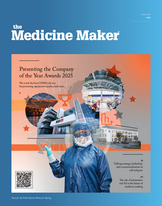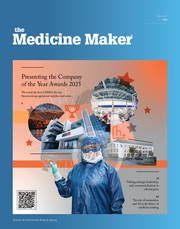
Deep Data Diver
Sitting Down With... Brian Overstreet, President at Advera Health Analytics, USA.
From a degree in political science to an expert in healthcare data – how?
At first, I thought I wanted to be a lawyer so I studied political science at university. But I very quickly realized that I definitely did not want to be a lawyer! After graduating, I spent a couple of years in investment banking and then I became interested in research. This was in the mid to late 90s when the Internet was rapidly rising. It didn’t take a lot of imagination to realize that putting a data or research product online would get you a lot of traction. So that’s what we did – we set up a research company and our healthcare products became our most popular line. We sold the company (Sagient Research) to Informa in 2012. And looking back at my degree, although it wasn’t the most direct path it has served me well. Political science is a subject where you need to understand how to read and write – and that’s essential given that I am so data-focused today.
What inspired you to focus on adverse drug events?
Simple – my business partner’s wife became sick from an adverse drug event. And the deeper we dug into the problem the more we realized that there was very little information in this area that was easily searchable. The FDA does have an adverse event database but it has several problems, so we saw an opportunity to create a clean database. Because of our background in data analytics, I think it was easier for us to figure out the way forward than it could have been. But it still took us 18 months – we had to clean up millions of side effect reports to form a useable database.
How has the industry reacted to your work?
There is no getting around the fact that our focus is on the negative aspects of drugs. We are not yet looking at the efficacy or the curative value of a drug; we are looking at the risks to patients and health systems, and the risks to the economics of insurance companies and hospitals. However, we are mindful not to raise this to the level of hysteria. Adverse drug events are a really important aspect of the whole conversation about health and you can’t just ignore them. We focus simply on what the data are saying. We would never say that people should stop taking a particular pill over another – these decisions need to be made depending on the patient’s own situation. We have earned a lot of trust because we are so factually led.
Who can make best use of data?
While I think that there is value in getting data into the hands of patients, it isn’t something that we do at the moment – we don’t deal with patients at all. The data we deal with are complex so we have made a conscious decision to focus on enterprise clients, such as pharma companies, hospitals and insurers, who can hopefully use the data to guide them to better decisions about patient safety. There are various ways we use our data but one popular feature of our site is the FDA alert predictor, which tracks adverse drug events and benchmarks them against past FDA warnings. We don’t expect pharma companies to take action before an alert comes out – but it’s always good to know what you may be storing up down the pipeline.
What are the challenges in working with data?
Big data is a buzzword right now – not only in healthcare; however, simply accessing (big) data does nothing but add to the ‘noise’. The real key is how you extract actionable intelligence from data – something my partner Bob Kyle and I have spent years trying to figure out.
Aside from using data to create a bigger picture, working with data directly is challenging. The biggest problem we’ve faced with adverse event data is that we’ve largely dealt with self-reported data. The process that the FDA has established for collecting and aggregating adverse event data isn’t great from a data management standpoint. For example, the data entry forms accept misspelled drug names and wrong data in the wrong fields. We’re adding new data from the FDA all the time and it’s important that the data is ‘scrubbed’ – which means making sure that everything is correct and in the right place!
Any big plans for 2016?
Our plans are all about how we introduce new data sets to our platform. People tell us they love our data, but they also love that we’ve made it user friendly with graphical interfaces. The first thing we’ll be doing is integrating clinical trials data, which will be interesting because it should allow users to compare clinical trial safety and efficacy with what happens in the real world. The next step – probably in late 2016 – is delving into claims data. We’ll be looking for aspects that are being tracked in the clinic, but not reported to the FDA.
What inspires you to keep moving forward?
I’m excited that we can do something that nobody ever thought would be possible. When we launched our business, everybody told us we were either stupid or crazy! But we stuck to our guns – and there really is a lot of value in these data. When I think about enhancing patient safety through data, it’s very satisfying. I’m not a healthcare provider, so there’s a limited amount of value that I can bring in terms of making people better – but even having a small impact through data is something that we are all proud of at Advera Health.



















